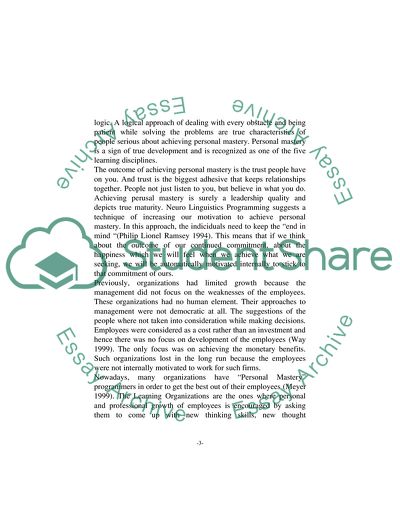Cite this document
(Characteristics of Personal Mastery and Effective Team Learning Term Paper, n.d.)
Characteristics of Personal Mastery and Effective Team Learning Term Paper. Retrieved from https://studentshare.org/human-resources/1736313-characteristics-of-personal-mastery-and-effective-team-learning
Characteristics of Personal Mastery and Effective Team Learning Term Paper. Retrieved from https://studentshare.org/human-resources/1736313-characteristics-of-personal-mastery-and-effective-team-learning
(Characteristics of Personal Mastery and Effective Team Learning Term Paper)
Characteristics of Personal Mastery and Effective Team Learning Term Paper. https://studentshare.org/human-resources/1736313-characteristics-of-personal-mastery-and-effective-team-learning.
Characteristics of Personal Mastery and Effective Team Learning Term Paper. https://studentshare.org/human-resources/1736313-characteristics-of-personal-mastery-and-effective-team-learning.
“Characteristics of Personal Mastery and Effective Team Learning Term Paper”, n.d. https://studentshare.org/human-resources/1736313-characteristics-of-personal-mastery-and-effective-team-learning.


